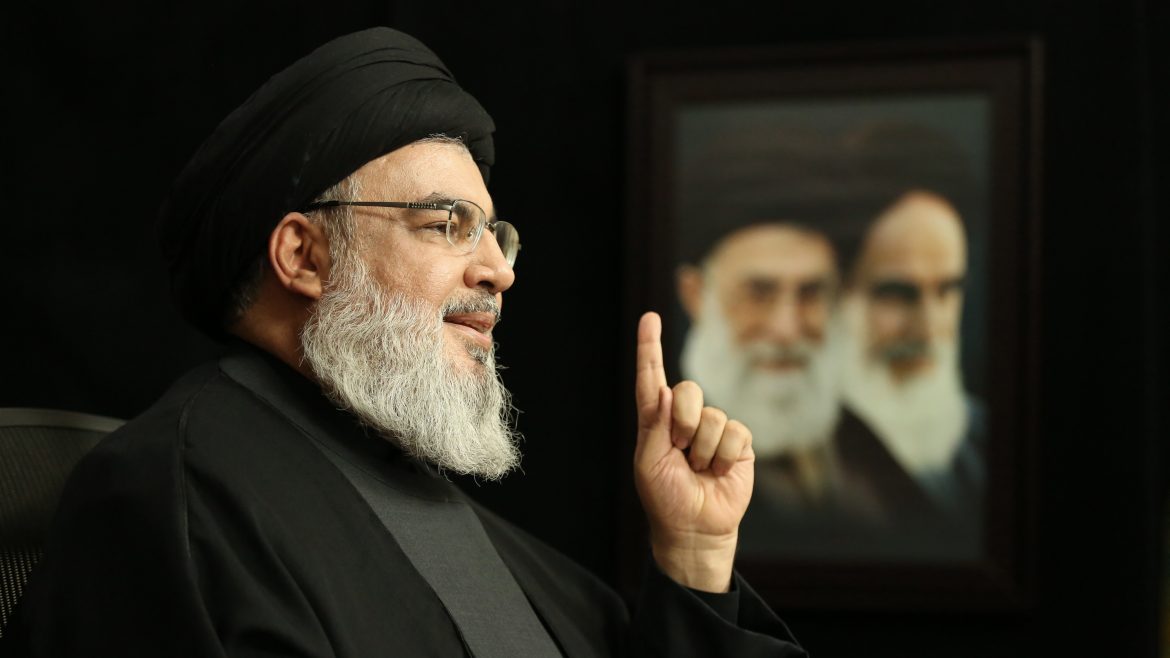It seems that not a day goes by without the discovery of another Middle Eastern country advancing its civilian nuclear ambitions. Indeed, the trend of establishing civilian nuclear programs for electricity production is sweeping across the Middle East. The Egyptians are currently building a nuclear power plant with Russian assistance, expected to supply up to half of the electricity needs of the Nile state. The Turks are also hard at work constructing the Akkuyu plant, with Ankara’s energy minister announcing this week that Turkey expects to begin operational tests as early as next year.
The Barakah power plant in the UAE, completed about three months ago, is the first nuclear power plant in the Arab world. It is expected to meet about a quarter of the country’s electricity demand. Iran operates the Bushehr nuclear power plant, which functions with the approval of the International Atomic Energy Agency (IAEA) and under its supervision. Currently, Iran is planning the construction of additional civilian reactors to address the country’s severe electricity issues.
Apart from these, other countries in the region have expressed interest in building similar facilities. Earlier this year, Iraq agreed with the IAEA to establish a civilian nuclear program, following the lead of other regional countries, including Saudi Arabia. According to reports, the Saudis have shown interest in developing a nuclear electricity program as part of the conditions for a formal normalization agreement with Israel. Last year, even Jordan, Israel’s neighbor to the east, announced that it was considering the purchase of small reactors, mainly for electricity production and water desalination.
The Middle Eastern trend is not without context. In recent years, there has been a renewed global interest in civilian nuclear energy, particularly against the backdrop of global warming and the pursuit of renewable energy sources to replace fossil fuels.
Nuclear energy is considered “green” and “sustainable,” and according to the IAEA, it can “help the energy sector transition away from fossil fuels more quickly and safely.” Currently, nuclear energy generates a quarter of the electricity produced with low emissions—evidence of its favorability compared to other alternatives to coal and oil. The European Union declared nuclear energy “green” about two years ago, and earlier this year, the Council of Europe designated it a “strategic tool” for reducing pollutant emissions on the continent.
Nuclear energy can help meet the rapidly growing global electricity demand driven by human population growth. Relatively new phenomena like Bitcoin mining or artificial intelligence applications consume enormous amounts of electricity, and as their usage grows, the demand for electricity is expected to increase—nuclear solutions could help alleviate the burden.
However, nuclear energy has gained a bad reputation. The Chernobyl reactor disaster in the 1980s or the meltdown and explosion at the Fukushima reactor in Japan in 2011 tarnished the reputation of nuclear energy and raised fears of accidents and safety failures causing significant damage, casualties, and radiation hazards. These disasters cannot be understated, but in general, nuclear power plants are considered in many countries—including the US and Canada, for example—as particularly safe compared to other industrial facilities. These accidents likely occurred due to poor design or negligence, and all these cases are being thoroughly investigated. Their lessons are recorded and applied in the construction of future reactors and in updating safety measures at existing reactors.
In fact, despite the extensive resonance of disasters originating from nuclear power plants, it is easy to forget that more than 400 nuclear power plants currently operate worldwide, supplying about 9% of global electricity production. Nevertheless, news headlines are not filled with reports of accidents at these sites, and demand for nuclear technology in electricity production is only increasing.
International restrictions
If everything is ideal, safe, efficient, and convenient to use, why doesn’t Israel have a nuclear power plant? What prevents the government from building one?
The issue of civilian nuclear energy in Israel has been discussed many times over the decades, but so far, no tangible program for building a civilian nuclear reactor has advanced. “In Israel, there are many discussions and study days on the subject,” says Col. (res.) Dr. Uri Nissim Levy, a nuclear defense expert, lecturer, and chairman of the global nuclear forum WNF-193. “Many leaders, former officials, and scientists, including from the Ministry of Energy, believe there is no reason not to advance nuclear energy in Israel.”
Recently, it was reported that the Energy Ministry is examining the possibility of building nuclear power plants in Israel by 2050 to replace the polluting fuels currently used in the country.
However, building a reactor is not similar to constructing other plants. It is a complex and expensive task, requiring expertise in the construction and operation of nuclear facilities that Israel currently lacks and is barred from acquiring from other countries. “This stems primarily from the fact that we are not signatories to the Nuclear Non-Proliferation Treaty (NPT), so we are not eligible to build civilian reactors,” explains Prof. Shaul Chorev, former head of the Israeli Atomic Energy Commission and head of the Maritime Policy and Strategy Research Center at the National Institute for Blue Economy.
According to Chorev, “Significant resources must be invested in building a civilian nuclear power plant. Currently, the program for nuclear engineering at the Technion no longer exists, unfortunately, and therefore we lack the industrial capacity and professional workforce to advance the construction of a civilian power reactor independently. Beyond that, obtaining nuclear fuel for a reactor in relatively large quantities is needed, unlike the small amount of fuel required for a research reactor, which operates at low output. Since we are not signatories to the NPT, no entity will be willing to supply us with fuel for such a reactor.”
To understand Chorev’s remarks, it is worth noting that Israel already operates two nuclear reactors. One is the Soreq Nuclear Research Center, and the other is the Negev Nuclear Research Center in Dimona. The Soreq center includes a research reactor like the one Prof. Chorev mentioned and is under IAEA inspection. The Dimona reactor—allegedly used, according to foreign sources, for producing plutonium for nuclear bombs—is not subject to oversight.
Israel is not obligated to open its nuclear facilities to IAEA inspection because it is one of the few countries not signed on the NPT, along with India, Pakistan, South Sudan, and North Korea—a country that was a signatory but withdrew and openly conducted nuclear tests. Thus, IAEA inspections of Soreq are conducted voluntarily.
The NPT governs two main areas of nuclear issues: the non-proliferation of nuclear weapons and the proper use of nuclear energy for civilian purposes. In an effort to prevent the proliferation of nuclear weapons worldwide, the treaty allows only five countries—the permanent members of the Security Council, all of which conducted nuclear explosive tests before the treaty’s signing—to possess such weapons. Other countries that signed the treaty are prohibited from possessing nuclear bombs. Therefore, India and Pakistan did not sign the NPT, similar to Israel.
In exchange for refraining from developing nuclear weapons, the treaty allows countries not permitted to possess nuclear weapons to rely on the IAEA to develop civilian nuclear technologies and use them, including for building nuclear power plants. Israel, not being a signatory to the treaty, cannot rely on the IAEA for this purpose.
In the past, Israel had other options. According to Prof. Chorev, the array of rules and mechanisms in this field were not in effect before the mid-1970s. Back then, “The US administration allowed Israel to contract with Westinghouse to build a nuclear power plant in the country. The agreement was canceled after India’s first nuclear test in 1974, which led the nuclear powers to conclude that the NPT alone would not stop nuclear proliferation. To this end, the Nuclear Suppliers Group (NSG), an organization of 48 countries, was established to operate according to guidelines for exporting nuclear technologies. Today, it refuses to transfer nuclear-related materials and equipment to Israel.”
Thus, Israel must consider another scenario: should it advance capabilities to build such a plant independently, despite the lack of industrial and professional infrastructure? In the past, the state allocated land in the Shdot Negev area for building such a power plant, so a site for construction already exists. However, it must first overcome the negative public perception of nuclear power plants. “There will be opposition from residents,” Prof. Chorev believes, “After the Fukushima disaster, the safety image of nuclear power plants is not good, although in recent years, there has been an improvement due to the integration of new safety measures and recognition that using nuclear energy for electricity production is one of the leading solutions for reducing polluting emissions.”
Dr. Levy agrees that public opinion is indeed changing, but he does not believe it will be an obstacle. “Public opinion is changing in Israel and worldwide. All the polls in the first half of 2024 in the US showed that more than 60% of Americans support nuclear energy, partly because the European Union classified nuclear energy as green energy a year and a half ago.” He believes this mindset is gaining traction in Israel and Europe: “In Belgium, which had four old reactors that were supposed to close at the end of 2023, the public protested against shutting them down, calling for extending their operation—contrary to logic,” says Dr. Levy. “This happened because electricity prices would have quintupled as a result.”
Terror concerns
Even if Israel could develop the expertise for a nuclear plant, the costs would be immense. Egypt committed to paying the Russians $30 billion to build its new reactor—a sum comparable to Israel’s entire defense budget. The government in Israel would likely need to invest an even larger sum to establish a power plant to compensate for the lack of expertise and experience in the field.
“The construction of a nuclear power plant is very expensive,” says Lt. Col. (res.) Dr. Raphael Ofek, a nuclear technology and physics expert. “When you can produce electricity using means like oil or gas, it is much simpler and cheaper, and seemingly, there is no immediate need for nuclear. Israel also has five steam turbine power plants for electricity production, a form of renewable energy that is not as costly as nuclear. The cost of building and operating a nuclear power plant makes the idea insufficiently economically viable.”
Another complicating factor in establishing a nuclear power plant is security. “Given our situation in the Middle East, there is a risk that a nuclear power plant could be a target for bombing,” notes Dr. Ofek. “This is different from the reactors in Dimona or Soreq, which are smaller sites used primarily for research. A nuclear power plant is on a different scale—much larger, more prominent, and harder to defend.”
Prof. Chorev points out that this is indeed a significant concern: “Israel is a small country surrounded by threats, and a nuclear power plant could be an attractive target for attack, as we have recently experienced with Iran and Hezbollah. Even in the war between Russia and Ukraine, there were deep concerns about the possible consequences of damage to the Zaporizhzhia nuclear reactor.”
Dr. Levy believes that there are solutions to the security threats: “The fear of terrorism can be overcome. There are two dangerous parts in a reactor—the nuclear fuel storage area and the core. The core is strong, made of concrete, and well-protected,” he explains. “There is no perfect insurance, and it is complicated to protect such a plant, but that is not a reason not to build nuclear reactors—at least small or medium-sized ones.”
He also suggests that the economic obstacle could be resolved. “Building a reactor is expensive, but it could pay off in the long term,” says Levy. “We won’t do it alone, without help from the world. Israel is a technologically advanced country, but in our situation, it’s impossible to undertake such a project alone.”
Israel’s non-membership in the NPT complicates international cooperation in building a civilian reactor, but Levy believes that, theoretically, a way around this obstacle could be found. “Israel is not a signatory to the treaty due to its policy of nuclear ambiguity, which is now at the center of public debate about whether it is the correct policy. I believe it is appropriate to maintain ambiguity, but it is uncertain whether it will remain in place in the long term. In any case, even under conditions of ambiguity, cooperation with other countries is a solvable issue.”
Before that, he argues, Israel must make a definitive decision about whether it wants to promote a civilian nuclear energy policy: “First and foremost, a political decision must be made—not remain at the level of opinions and suggestions. If the state decides to pursue civilian nuclear energy, it will find a way,” he says confidently.
Prof. Chorev offers a relevant course of action on the matter. “India’s case, which was recognized by the US in 2002 as eligible for a civilian nuclear program due to American geopolitical considerations, should serve as a model for Israel,” he says. “This is a case of a country that gained recognition for a civilian nuclear program even though it is not a signatory to the NPT, and at the right time, the Americans agreed to grant it an ‘exemption.'”
“In my opinion, the State of Israel should act similarly. In one of the appropriate opportunities—such as when the Saudis raise their demands with the US for a civilian nuclear program as part of a normalization agreement with Israel—the government in Jerusalem should request US assistance in advancing a civilian nuclear program, similar to India.”
Until such an opportunity arises, Chorev suggests another possible course of action. “If a foreign company operates such a reactor outside the territorial waters of the state, meaning about 20 kilometers from the coast, it could meet the requirements of the Nuclear Non-Proliferation Treaty since the reactors would be outside our sovereign territory,” he says.
The US, Russia, and China are competing to promote this advanced technology—floating reactors—and Russia has already operated the world’s first floating nuclear power plant, Akademik Lomonosov, for four years, generating 60 megawatts. The Biden administration has invested heavily in this nuclear pathway, which, in many ways, resembles the internal electricity production system of nuclear submarines.
The IAEA recognizes the potential of such facilities, which can assist in powering offshore gas and oil rigs, desalinating seawater, and conducting deep-water drilling. Is this a technology that could suit Israel in the near future? According to Prof. Chorev, this is the course of action that should be developed now: “Such floating reactors,” he says, “are the right future solution for Israel.”
Published in Israel Hayom, December 23, 2024.
**The opinions expressed in Misgav publications are the authors’ alone.**











